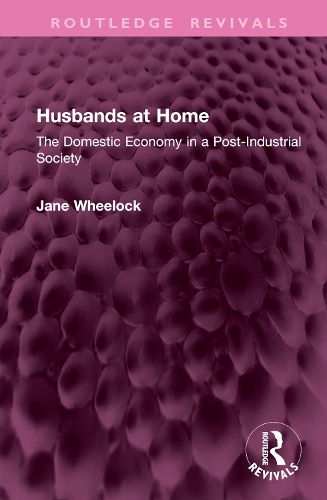Readings Newsletter
Become a Readings Member to make your shopping experience even easier.
Sign in or sign up for free!
You’re not far away from qualifying for FREE standard shipping within Australia
You’ve qualified for FREE standard shipping within Australia
The cart is loading…






First Published in 1990, Husbands at Home gives a clear picture of the relationship between the domestic and the formal economy. Who does the housework when men become unemployed? Is a true reversal of gender roles possible? Jane Wheelock discovered, despite sociologists' expectations, that most men are willing to share domestic labour with their (still working) female partners.
Wheelock uses her research among families in North East England, an area of acute unemployment in traditional male industries, as a basis for this panoramic study. She provides extensive, empirical, and theoretical coverage of the household economy, linking it with the process of regional and global restructuring. The study challenges the assumptions made by economists that households operate on the basis of economic rationality. Including both men and women in her analysis, Wheelock underlines the contradictions arising from the need to reconcile conflicts between self-respect, traditional patriarchal views, and the rationality imposed by the market.
The book analyses the role of the state and benefit system in perpetuating gender ideologies, arguing that imaginative state policies could transform gender roles in a post-industrial society. This book will be useful to students in a variety of disciplines, including economics, sociology, and social policy, and will be a particular interest to those on women's studies and regional studies courses.
$9.00 standard shipping within Australia
FREE standard shipping within Australia for orders over $100.00
Express & International shipping calculated at checkout
First Published in 1990, Husbands at Home gives a clear picture of the relationship between the domestic and the formal economy. Who does the housework when men become unemployed? Is a true reversal of gender roles possible? Jane Wheelock discovered, despite sociologists' expectations, that most men are willing to share domestic labour with their (still working) female partners.
Wheelock uses her research among families in North East England, an area of acute unemployment in traditional male industries, as a basis for this panoramic study. She provides extensive, empirical, and theoretical coverage of the household economy, linking it with the process of regional and global restructuring. The study challenges the assumptions made by economists that households operate on the basis of economic rationality. Including both men and women in her analysis, Wheelock underlines the contradictions arising from the need to reconcile conflicts between self-respect, traditional patriarchal views, and the rationality imposed by the market.
The book analyses the role of the state and benefit system in perpetuating gender ideologies, arguing that imaginative state policies could transform gender roles in a post-industrial society. This book will be useful to students in a variety of disciplines, including economics, sociology, and social policy, and will be a particular interest to those on women's studies and regional studies courses.